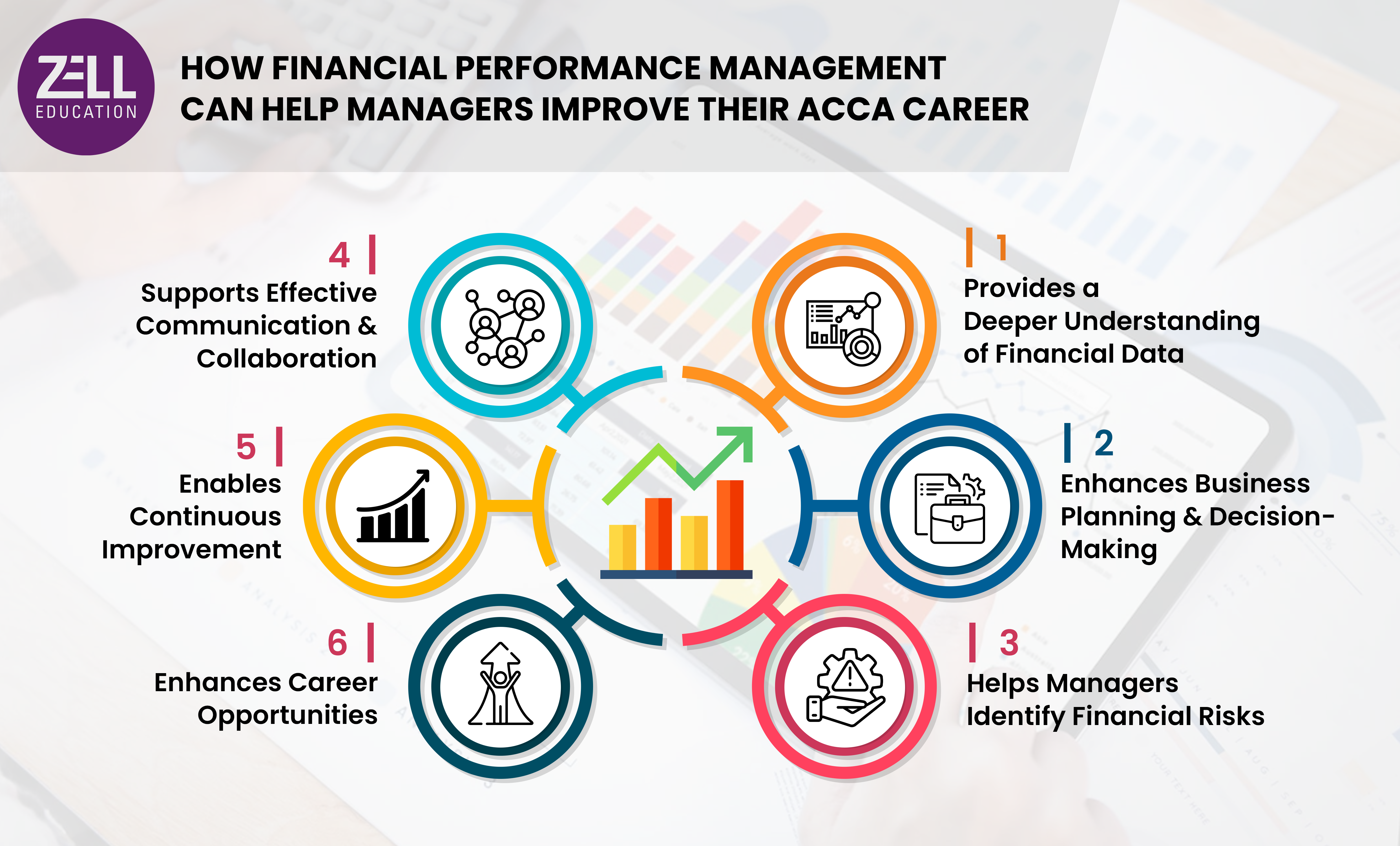As an ACCA career professional, there are several ways to improve your career trajectory, and one of the most effective methods is through financial performance management. Financial performance management is a critical component of modern business management, which involves the process of planning, budgeting, forecasting, monitoring, analysing, and reporting financial data to optimize the financial performance of an organization. In this blog post, we will discuss how financial performance management can help managers improve their ACCA career.
A Deeper Understanding of Financial Data is Provided by Financial Performance Management
One of the critical skills required for an ACCA course professional is the ability to understand and interpret financial data. Financial performance management provides managers with a deeper understanding of financial data, allowing them to analyze financial statements, assess profitability, identify financial risks, and make informed decisions. With financial performance management, managers can develop a better understanding of key financial ratios, such as the debt-to-equity ratio, return on investment, and net profit margin, which are crucial for assessing a company’s financial health.
Managing Financial Performance Improves Decision-Making and Business Planning
Financial performance management enables managers to plan and forecast future financial performance, providing them with the insights they need to make informed business decisions. With financial performance management, managers can develop realistic budgets, set financial targets, and track progress against those targets. They can also use financial performance management tools to identify areas where they can reduce costs, increase revenue, and improve profitability. This, in turn, can help them make better decisions that drive business growth and success.
The Financial Performance Management Process Helps Managers Identify Financial Risks
As an ACCA career professional, it is crucial to identify and mitigate financial risks to protect the financial health of an organization. Financial performance management provides managers with the tools they need to identify potential financial risks, such as changes in market conditions, regulatory changes, or shifts in consumer behavior. By identifying these risks, managers can take proactive measures to mitigate them, reducing the likelihood of financial losses or negative impacts on the business.
Collaboration and Communication are Supported by Financial Performance Management
Effective communication and collaboration are essential skills for any ACCA career professional, and financial performance management can help support these skills. With financial performance management, managers can communicate financial data and insights to stakeholders across the organization, including executives, investors, and other team members. This can help to build trust and transparency, improve decision-making, and promote collaboration among team members.
Continuous Improvement is Enabled by Financial Performance Management
Continuous improvement is a critical component of any successful ACCA career, and financial performance management can help support this process. By tracking and analyzing financial data, managers can identify areas where they can make improvements, whether it’s reducing costs, improving profitability, or increasing revenue. They can then take action to implement these improvements and track progress against their financial goals.
Managing Financial Performance Enhances Career Prospects
Finally, financial performance management can help ACCA career professionals enhance their career opportunities. By developing a deep understanding of financial performance management and its tools and techniques, managers can position themselves as experts in their field. They can also leverage their skills and knowledge to pursue higher-level roles, such as finance director, financial controller, or chief financial officer.
Conclusion
Financial performance management is a critical skill for any ACCA career professional. By providing a deeper understanding of financial data, enhancing business planning and decision-making, helping managers identify financial risks, supporting effective communication and collaboration, enabling continuous improvement, and enhancing career opportunities, financial performance management can help managers improve their ACCA career trajectory.
Whether you are just starting your ACCA career or looking to take your career to the next level, financial performance management is a skill you cannot afford to ignore.To keep up with the pace of the changing accounting domain, it’s important to upskill with professional courses. If you’re confused about ACCA Program Details, reach out to us at Zell Education, and we’d be happy to counsel you. You can also fill in the form on the right-hand side and someone from our team will contact you.
FAQ’s
What is ACCA performance management?
ACCA Performance Management focuses on analysing and optimizing organizational performance through strategic planning, decision-making, and performance evaluation. It equips professionals with the skills to interpret financial data, set performance targets, and implement strategies to achieve business objectives effectively.
What is financial management ACCA?
ACCA Financial Management covers the principles and techniques essential for effective financial decision-making within organizations. It encompasses areas such as investment appraisal, financing decisions, risk management, and working capital management, providing professionals with the knowledge and skills to optimize financial resources and drive sustainable business growth.
What is advanced performance management in ACCA?
ACCA Advanced Performance Management (APM) builds upon the foundational knowledge of performance management, focusing on advanced techniques and strategic analysis to drive organizational performance. It covers topics such as strategic performance measurement, strategic planning and control, and performance evaluation methods, preparing professionals to formulate and execute strategic initiatives that maximize long-term value creation and competitive advantage.
What does financial performance management involve?
Financial performance management involves the process of analysing, monitoring, and optimizing a company’s financial performance to achieve its strategic objectives. It encompasses activities such as budgeting, forecasting, financial reporting, variance analysis, and key performance indicator (KPI) tracking. By closely managing financial performance, organizations can make informed decisions, allocate resources effectively, and drive sustainable growth.
Why Zell?
- • Largest Provider for Global F&A Courses
- • 4.6 Google Review Rating
- • 1000+ Global Placement Partners
- • Placement Opportunities at the Big 4
- • 100+ Global & Indian Rank Holders
- • 100+ Faculty Network
- • 10,000+ Students Placed
Speak to A Career Counselor
Speak To A Course Expert To Know More

